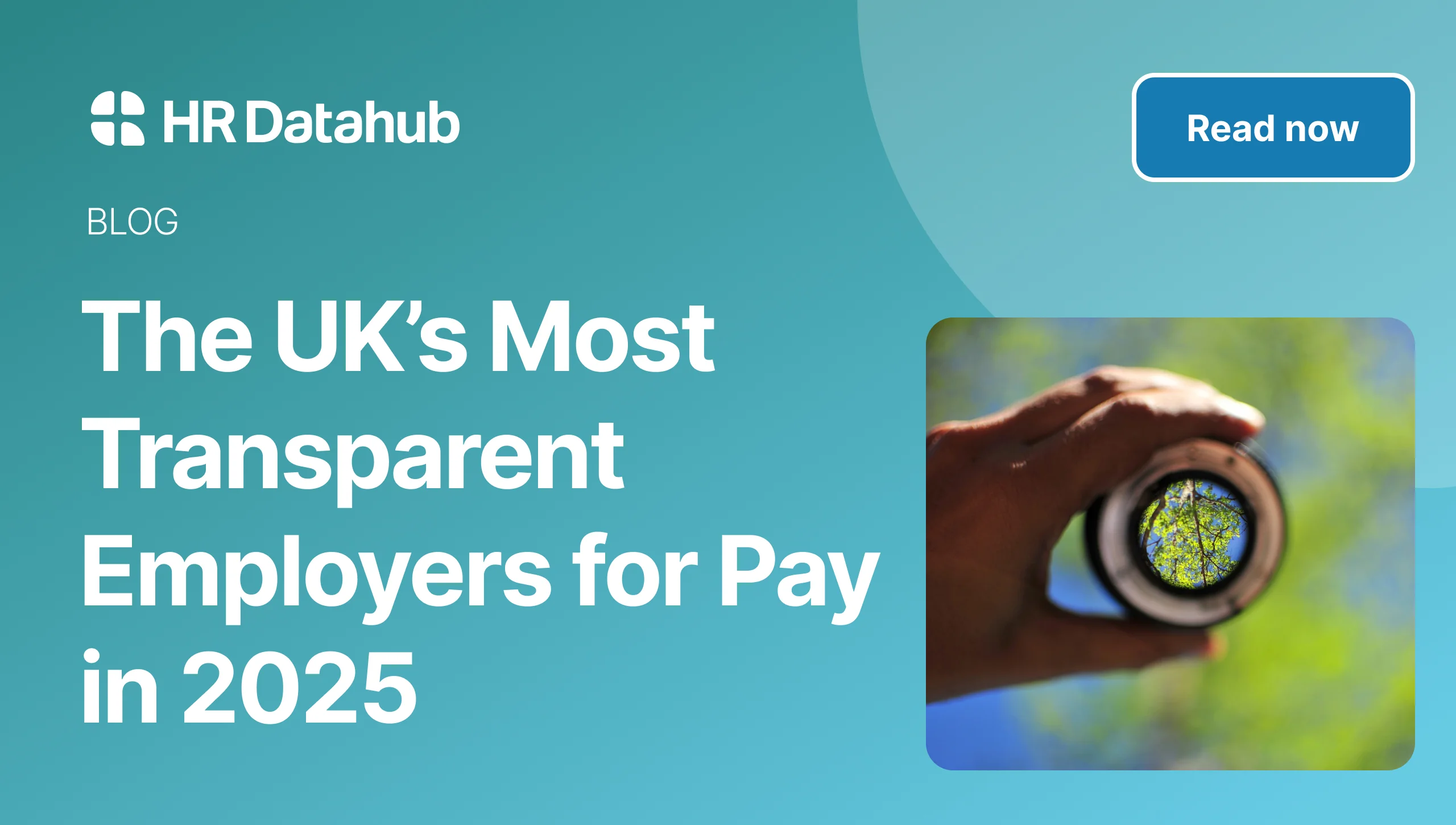

February 20, 2024
February 20, 2024
The EU Pay Transparency Directive: What will it mean for UK businesses

Published by:
Alexa Grellet
,
COO & Co-Founder
,
HR DataHub

Reviewed by:
David Whitfield
,
CEO & Co-Founder
,
HR DataHub

5
MIN READ time
.webp)
The incoming EU Pay Transparency Directive means big changes for EU businesses.
For starters, HR professionals will be required to assess any pay discrepancies that relate to gender and address these issues - fast.
While the directive is currently only affecting countries in the EU, we’re also anticipating big changes for UK employers.
Let’s explore what these changes mean to UK businesses and how understanding the changes and being prepared could mean you’re one step ahead of your competitors.
So, why does this matter for UK businesses?
So what is the transparency directive of the EU?
At its core, it’s about reducing pay discrimination and creating fair pay for women in the EU by enforcing and regulating salary transparency.
And while it primarily targets EU businesses, it also applies to any UK businesses that operate in the EU or have employees that work or live in the EU.
For other UK businesses, it may only be a matter of time before the UK follows suit.
While the government appears to have no current plans to introduce enhanced salary transparency in the UK, it’s an important area of focus for many UK employees, particularly in the current economic climate.
Around 63% of employees recently stated they’re more likely to discuss pay with their colleagues due to the current cost of living pressures affecting the UK. While changing employee expectations are seeing the fresh generation of employees demanding transparency as part of the recruitment process.
People Management recently found that around half of the job adverts posted in the UK already post salary details. Unsurprisingly to us, those that advertise their salaries attracted around six times more applicants than those that didn’t.
To remain competitive, all UK businesses should be prioritising pay transparency - and doing so ASAP!

Moving towards pay transparency has some positive impacts - if UK businesses get ahead of the curve
For UK businesses who embrace pay transparency, there are plenty of benefits:
Being ahead of the curve will give you a real competitive advantage.
It will also allow you to maximise the benefits of pay transparency for your organisation.
According to research by WTW, pay transparency in the UK is being driven by various factors, including culture and values, employee expectations, ESG and DEI.
Pay transparency can also help to protect your brand.
Pay secrecy has been known to enable pay disparity among employees. If left unchecked, pay disparity can have serious negative consequences, which can affect the health of an organisation’s brand. Particularly if it misaligns with your messages about supporting women. Let’s not forget how many well-meaning posts on International Women’s Day have backfired for many companies who have been called out for pink-washing.
One of the key aspects of the EU directive is that not only will employers need to provide pay transparency, but they'll need to address and fix any areas where there are differences in pay. This will give HR teams and leadership a chance to uncover the issues and rectify the problem before they become a major issue.
Retain your best people.
When Reed asked employees how they’d feel about finding out a colleague in a similar role was paid more, 15% said they’d seek a new role and 5% said they’d quit. A whopping 40% said they’d feel undervalued as an employee, which could impact motivation and performance.
Including salary details in job ads helps give women a fairer chance.
Of course, the biggest positive of all - pay transparency moves us closer to reducing the gender pay gap.
Pay transparency helps employers to detect and avoid discriminatory pay patterns and decrease the need for pay negotiations. According to Forbes, the gender pay gap could be reduced by a huge 40% with even broad salary transparency.
Plenty of studies have shown women typically feel less comfortable discussing salaries during interviews. Men, in contrast, are 20% more comfortable negotiating salaries as part of the recruitment process.
By eliminating salary negotiation through transparency, companies are able to avoid introducing a gender pay gap that can negatively affect a woman's salary opportunity for years to come.
Get your house in order and start preparing for pay transparency now.
While almost half of UK organisations don’t believe their pay programs are ready yet, it’s important to start to make changes today.
According to a KMPG study last year, less than 50% of employers had considered pay transparency.
And of those, only 30% currently publish salary rates in their job adverts.
Although the concept of equal pay has technically been enshrined in the UK since 1970, without transparency laws, it’s simply not a focus for many businesses.
But all that could be about to change.
And we’re encouraging businesses of all sizes to start preparing now.
Should the UK introduce a directive similar to the UK it will mean big changes for many organisations.
Employers will be required to have pay structures in place that categorise equal or same value work to enable pay comparisons, and provide information about pay ranges, collective agreements and pay progression both at the beginning and during employment. There will also be enhanced gender pay gap reporting, including reporting pay gaps by category of workers.
In summary, the new EU directive will mean fundamental changes to how employees manage their data and make it available to all employees.
Make sure that you're paying fairly with HR DataHub.
At HR DataHub, our salary benchmarking tool helps HR and Reward professionals to make the right pay decisions for both their business and their people.
Our real-time UK job market data means you can get the information you need to benchmark your salaries and make sure you’re always paying fairly.
Start getting your house in order and make sure that you're paying fairly today. Register for a free trial.
TABLE OF CONTENTS






